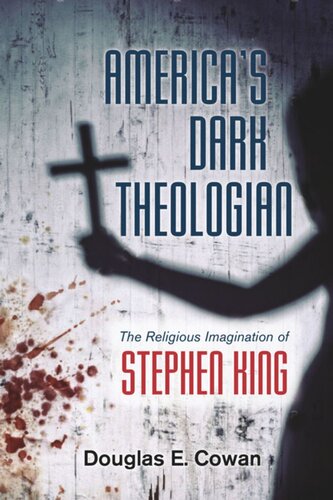

Most ebook files are in PDF format, so you can easily read them using various software such as Foxit Reader or directly on the Google Chrome browser.
Some ebook files are released by publishers in other formats such as .awz, .mobi, .epub, .fb2, etc. You may need to install specific software to read these formats on mobile/PC, such as Calibre.
Please read the tutorial at this link: https://ebookbell.com/faq
We offer FREE conversion to the popular formats you request; however, this may take some time. Therefore, right after payment, please email us, and we will try to provide the service as quickly as possible.
For some exceptional file formats or broken links (if any), please refrain from opening any disputes. Instead, email us first, and we will try to assist within a maximum of 6 hours.
EbookBell Team

4.8
14 reviewsIlluminating the religious and existential themes in Stephen King’s horror stories
Who are we? Why are we here? Where do we go when we die? For answers to these questions, people often look to religion. But religion is not the only place seekers turn. Myths, legends, and other stories have given us alternative ways to address the fundamental quandaries of existence. Horror stories, in particular, with their focus on questions of violence and mortality, speak urgently to the primal fears embedded in such existential mysteries. With more than fifty novels to his name, and hundreds of millions of copies sold, few writers have spent more time contemplating those fears than Stephen King. Yet despite being one of the most widely read authors of all time, King is woefully understudied. America’s Dark Theologian is the first in-depth investigation into how King treats religion in his horror fiction.
Considering works such as Carrie, The Dead Zone, Misery, The Shining, and many more, Douglas Cowan explores the religious imagery, themes, characters, and, most importantly, questions that haunt Stephen King’s horror stories. Religion and its trappings are found throughout King’s fiction, but what Cowan reveals is a writer skeptical of the certainty of religious belief. Describing himself as a “fallen away” Methodist, King is less concerned with providing answers to our questions, than constantly challenging both those who claim to have answers and the answers they proclaim. Whether he is pondering the existence of other worlds, exploring the origins of religious belief and how it is passed on, probing the nature of the religious experience, or contemplating the existence of God, King invites us to question everything we think we know.